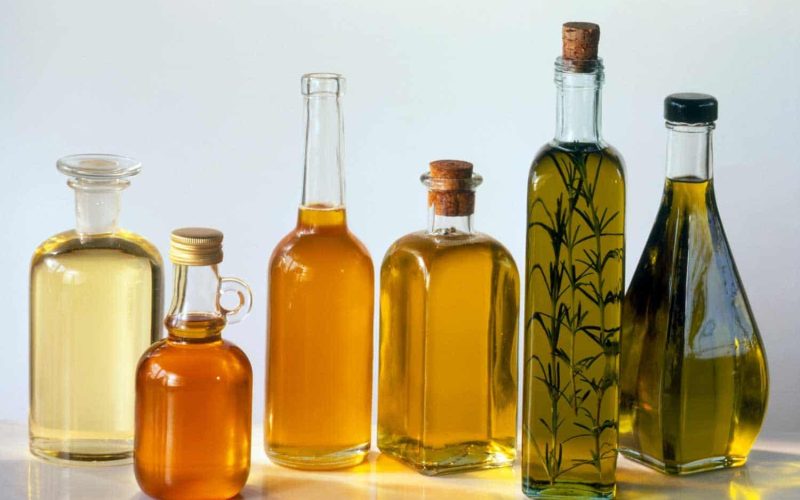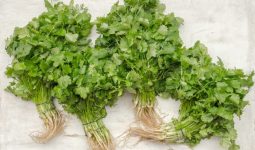Are you looking to bake healthier treats but want to avoid using oil? There are plenty of substitutes for oil in baking to choose from!
Whether you’re trying to reduce your calorie intake, eliminate animal products, or switch things up in the kitchen, we’ve got you covered.
In this post, we’ll explore some of the best substitutes for oil in baking, along with tips and tricks for using them effectively.
From fruit purees to yogurt and beyond, these ingredients will help you achieve perfectly moist, flavorful results without sacrificing taste or texture.
Are you looking for healthier alternatives to oil when baking your favorite treats? You’re in luck!
Plenty of substitutions can be made to cut down on calories and saturated fats while still achieving that deliciously moist and flavorful end result.
Whether you’re vegan, trying to reduce your intake of processed ingredients, or simply looking to switch things up in the kitchen, we’ve compiled a list of the best substitutes for oil in your baking recipes.
So, grab your apron and get ready to bake up a storm!
1. Margarine

Margarine is among the common best substitutes for oil in baking recipes. It is typically made from vegetable oils, such as soybean, palm, or sunflower oil.
Margarine is often lower in calories and saturated fat than butter, making it a popular option for those looking to reduce their calorie intake.
When using margarine as a substitute for oil in baking, it is important to keep in mind that margarine contains more water than oil.
Therefore, it may alter the texture and flavor of your baked goods. To avoid this, you may want to adjust the recipe by adding a bit more flour or reducing the number of other liquids used.
You can use margarine as a substitute for oil in many baked goods, including cookies, cakes, and muffins.
However, be sure to choose a margarine that is labeled as suitable for baking, as some varieties may not be suitable due to their water content.
When using margarine as a substitute for oil in baking, it is best to melt it before adding it to your recipe.
This will help to ensure that it is evenly distributed throughout your batter. You can add some margarine to your pan or baking dish to prevent sticking.
Overall, margarine can be a good substitute for oil in baking, but it may take some trial and error to find the right balance of ingredients for your recipe.
2. Bananas

Bananas are a fantastic best substitute for oil in baking because they add moisture and natural sweetness.
Mashed bananas work best in recipes that call for a neutral-flavored oil like vegetable or canola oil. They’re a great potassium, fiber, and vitamin C source!
To use mashed bananas instead of oil, use the following conversion: 1/2 cup mashed bananas for every 1 cup of oil called for in the recipe.
It’s important to note that the banana flavor will come through in the final product, so keep that in mind when deciding whether or not to use this substitute.
Bananas work particularly well in baked goods like muffins, bread, and cake. They’re also great in recipes that call for chocolate chips or nuts because they pair so well with those flavors.
So next time you’re baking and want to make a healthier swap, consider using mashed bananas instead of oil. Your taste buds and your body will thank you!
3. Coconut Milk

Coconut milk is one of the best substitutes for baking oil for those looking for a healthier alternative.
Not only is it a plant-based option, but it’s also rich in healthy fats that can help improve your overall health.
However, Coconut milk can be used in baking recipes instead of oil, butter, or cream. It’s great for adding richness and flavor to cakes, muffins, and other baked goods.
To substitute coconut milk for oil, use the same amount of coconut milk as you would oil.
Keep in mind that coconut milk has a thicker consistency than oil, so your baked goods may come out a bit denser than usual.
However, this can also add a nice texture and flavor to your treats.
Additionally, coconut milk is packed with nutrients like iron, magnesium, and calcium. These minerals can help improve your immune system, promote bone health, and boost energy levels.
So, consider using coconut milk next time you’re looking for an oil substitute in your baking recipes. Your taste buds and body will thank you!
4. Honey

Honey is another great and one of the best substitutes for oil in baking. Not only does it add sweetness, but it also helps keep baked goods moist.
In fact, honey is a popular substitute for oil in muffin and cake recipes.
To substitute honey for oil, use a 3:4 ratio. For example, if a recipe calls for 1/4 cup of oil, use 1/3 cup of honey instead.
It’s important to note that using honey may also add a distinct flavor to your baked goods.
Another great thing about honey is that it’s a natural sweetener, so you can reduce the amount of added sugar in your recipe.
However, keep in mind that honey is still a form of sugar and should be used in moderation.
Honey is a healthier substitute for oil in baking, as it’s lower in saturated fat and calories. Plus, it adds a touch of sweetness and moisture to your baked goods. Give it a try in your next recipe!
5. Quinoa

Another surprising ingredient that can be used as one of the best substitutes for oil in baking is quinoa.
This ancient grain is packed with nutrients such as fiber, protein, and iron, making it a great addition to any recipe.
Its subtle nutty flavor won’t overpower the other ingredients in your baked goods. To use quinoa as an oil substitute, start by cooking it in water until it’s tender.
Then, use a food processor or blender to puree the cooked quinoa until it forms a smooth paste. This paste can be used instead of oil in a 1:1 ratio in most baking recipes.
Not only will it add a unique flavor and texture to your baked goods, but it also provides added health benefits.
Whether you’re making cookies, cakes, or bread, quinoa is a versatile ingredient that can be used to replace oil and make your baked goods healthier without sacrificing flavor or texture.
Give it a try in your next recipe and see the difference it can make.
6. Sweet Potatoes

Another great substitute for oil in baking is sweet potatoes. Sweet potatoes add moisture and natural sweetness to your baked goods, making them an ideal replacement for oil.
Simply boil, mash, and add to your recipe instead of oil.
Not only are sweet potatoes a delicious alternative to oil, but they also provide a range of health benefits.
They are rich in fiber, vitamins A and C, potassium, and beta-carotene, which have been shown to have anti-inflammatory and antioxidant effects.
Add sweet potato puree to your muffins, pieces of bread, and cakes for a healthier and tasty alternative to oil. You’ll be surprised how delicious your baked goods will turn out!
7. Butter

Butter is a common ingredient in baking, but if you want to reduce your intake of saturated fats, healthier options can still give your baked goods rich flavor and texture.
For every cup of butter, you can replace it with 3⁄4 cup of another ingredient.
One alternative is using mashed bananas or mashed sweet potatoes, which add natural sweetness to your baking and a soft, moist texture.
Coconut oil is another great option that works well in recipes that require melted butter, such as cookies or brownies.
If you’re looking for a lower-fat option, you can replace butter with Greek yogurt, which adds a tangy flavor and creamy texture.
Alternatively, you can use unsweetened applesauce, which is a popular substitute in vegan baking.
Finally, if you’re looking for a unique twist, you can try using mashed avocado as a substitute, which adds healthy fats to your baked goods.
Overall, many alternatives to butter can add flavor and texture to your baking without compromising your health goals.
Experiment with different options to find the perfect replacement for your recipe.
8. Canola Oil
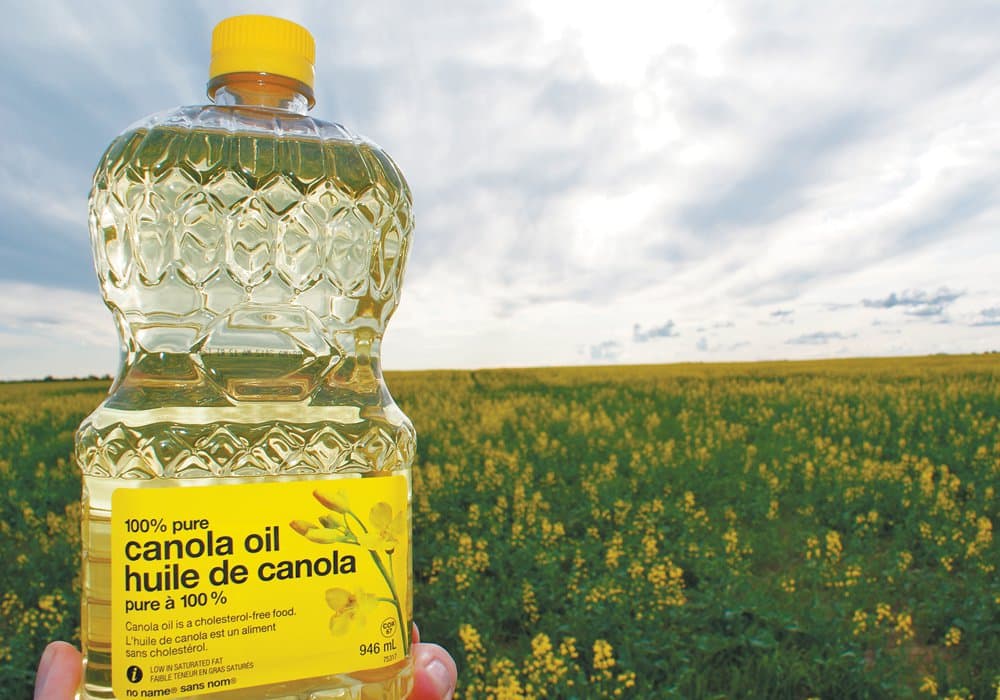
Canola oil is among the popular best substitutes for oil in baking. It’s low in saturated fats and has a high smoke point, making it perfect for high-temperature baking.
It’s also neutral in flavor, making it a great option if you don’t want any additional taste in your baked goods.
You can substitute canola oil with the same amount of melted coconut oil or melted butter.
You can also try using vegetables, sunflower, or safflower, although these oils may taste slightly stronger.
If you’re looking for a healthier alternative to canola oil, try using unsweetened applesauce or pumpkin puree instead.
These ingredients are lower in fat and calories but still provide moisture and help bind ingredients together.
Just make sure to adjust the amount of sugar in your recipe since these substitutes will add some natural sweetness.
9. Unsweetened Applesauce

Unsweetened applesauce is an excellent option if you’re looking for healthy best substitutes for oil in baking.
Applesauce is made from pureed apples and contains no fat, making it an ideal replacement for oil in baked goods.
To use applesauce as a replacement for oil, replace the oil with an equal amount of applesauce in your recipe.
For example, if your recipe calls for 1/2 cup of oil, replace it with 1/2 cup of applesauce.
One thing to keep in mind when using applesauce in baking is that it may add a slightly sweet flavor to your baked goods.
This can be positive or negative, depending on your preferences. If you prefer a less sweet taste, look for unsweetened applesauce.
Another benefit of using applesauce as a replacement for oil is that it adds moisture to your baked goods, which can help them stay moist and tender. This makes it a great option for cakes, muffins, and quick breads.
Overall, unsweetened applesauce is an excellent substitute for oil in baking. It’s healthy, easy to use, and can add moisture and sweetness to your baked goods.
Give it a try next time you’re baking, and see how it works for you!
10. Avocado

If you’re a fan of avocado’s rich and creamy taste, you’ll be happy to know that it makes an excellent substitute for oil in baking.
Like butter or oil, avocado contains a good amount of fat, which helps create moisture and tenderness in baked goods.
To replace avocado, mash up a ripe avocado and measure the same amount as you would oil. For example, if the recipe calls for 1/4 cup of oil, use 1/4 cup of mashed avocado instead.
If you prefer a smoother texture, you can blend the avocado until it’s completely smooth before adding it to your recipe.
Remember that avocado has a distinct flavor, so it’s best used in recipes where its taste won’t be overpowering.
It works particularly well in chocolate baked goods, as the rich chocolate flavor balances out the avocado taste.
Aside from being a great baking substitute, avocado is also a nutritional powerhouse. It’s high in healthy fats, fiber, potassium, and other important nutrients.
So not only will your baked goods taste great with avocado, but they’ll also be healthier!
11. Pumpkin Puree

Pumpkin puree is another great option when it comes to substituting oil in baking recipes.
This creamy and delicious puree is made from cooked and mashed pumpkin, adding a rich and slightly sweet flavor to baked goods.
In addition, pumpkin puree is also low in calories and high in fiber, making it healthy and among the best substitutes for oil.
To use pumpkin puree as a substitute for oil in baking, replace the oil with an equal amount of pumpkin puree.
For example, if your recipe calls for 1 cup of oil, replace it with 1 cup of pumpkin puree. This will add moisture and richness to your baked goods without compromising on taste or texture.
Pumpkin puree works especially well in recipes for cakes, muffins, and pieces of bread, as it gives them a soft and tender texture.
You can also use it in recipes for brownies and cookies, although you may need to adjust the recipe slightly to get the right consistency.
One thing to keep in mind when using pumpkin puree is that it has a distinct flavor that can be overpowering if you use too much of it.
To avoid this, start by replacing half of the oil with pumpkin puree, and adjust the amount based on your taste preferences.
In addition to being among great substitutes for oil in baking, pumpkin puree is also a versatile ingredient that can be used in various recipes.
You can use it to make pumpkin soup, pumpkin pie, or even pumpkin smoothies.
So, if you’re looking for an oil substitute in your baking recipes, consider reaching for a can of pumpkin puree instead!
12. Flaxseed Meal

Flaxseed meal is among excellent substitutes for oil in baking. Not only does it provide a nutty flavor, but it is also a great source of omega-3 fatty acids, fiber, and antioxidants.
To use a flaxseed meal as an oil substitute, mix one tablespoon of flaxseed meal with three tablespoons of water and let it sit for a few minutes until it thickens.
This mixture will replace one-fourth cup of oil in your recipe. Keep in mind that a flaxseed meal will make your baked goods denser, so you may need to adjust your recipe accordingly.
Flaxseed meal works well in muffins, pancakes, and bread. You can also sprinkle it on your oatmeal or yogurt for added nutrition.
13. Ghee

Ghee is a type of clarified butter that has been heated to remove all of the milk solids and water. It is commonly used in Indian cooking and has a nutty, rich flavor that works well in baking.
Using ghee instead of oil in baking can add a depth of flavor and richness to your desserts.
It also has a higher smoke point than regular butter, which means it can withstand higher baking temperatures without burning.
To substitute ghee for oil in baking, use it in a 1:1 ratio. For example, if your recipe calls for 1/2 cup of oil, use 1/2 cup of ghee instead.
Remember that ghee is still a form of fat, so it will add calories and fat to your baked goods.
One thing to note when using ghee in baking is that it can solidify when it comes into contact with cold ingredients.
If you’re using ghee in a recipe requiring creaming butter and sugar, soften it beforehand to ensure it blends properly.
Overall, ghee is a delicious substitute for oil in baking that can add a unique flavor and richness to your desserts. Give it a try and see how it enhances your favorite recipes!
14. Greek Yogurt

Greek yogurt is one of the great substitutes for oil in baking recipes, particularly those that call for vegetable oil. It’s rich in protein and can give a great texture to your baked goods.
One of the great things about Greek yogurt is that it doesn’t alter the flavor of your recipes, so it’s perfect for those who want to keep the original taste of their dishes.
When using Greek yogurt as one of the best substitutes for oil in baking, you should use the same amount as the recipe calls for.
This means that if a recipe requires 1/4 cup of oil, you should use 1/4 cup of Greek yogurt. You can also adjust the amount according to your taste and preference.
One of the great things about using Greek yogurt as a substitute for oil is that it can make your baked goods healthier.
Greek yogurt is a great source of protein, which can help you feel full and satisfied.
Additionally, it has less fat than oil, which can be helpful if you’re trying to lose weight or reduce your calorie intake.
You can use Greek yogurt in various baking recipes, including muffins, cakes, and bread. It can also be used as a substitute for sour cream or mayonnaise in dips, dressings, and spreads.
If you’re looking for a versatile and healthy replacement for oil, give Greek yogurt a try.
15. Silken Tofu

Silken tofu is a soft and creamy vegan best substitutes for oil in baking. It adds a subtle nutty flavor and a dense texture to baked goods.
This tofu is made from soybeans that are grounded, cooked, and blended with water until it reaches a smooth and creamy consistency.
To use silken tofu as an oil substitute, blend it in a food processor until smooth and creamy. It can be used as a replacement for oil in most baked goods, such as cakes, brownies, and muffins.
One great thing about silken tofu is that it is packed with protein and has a low-calorie count, making it a healthier option than traditional oils.
It also contains beneficial nutrients like iron, calcium, and magnesium.
When baking with silken tofu, it is important to use the right amount to achieve the desired texture. Generally, 1/4 cup of blended silken tofu can replace 1/4 cup of oil in baking recipes.
Silken tofu is an excellent oil substitute for those following a vegan or low-fat diet. Its creamy texture and subtle nutty flavor make it a versatile ingredient for baking.
Just be sure to blend it thoroughly and use the right amount for best results.
16. Pureed Fruits and Veggies
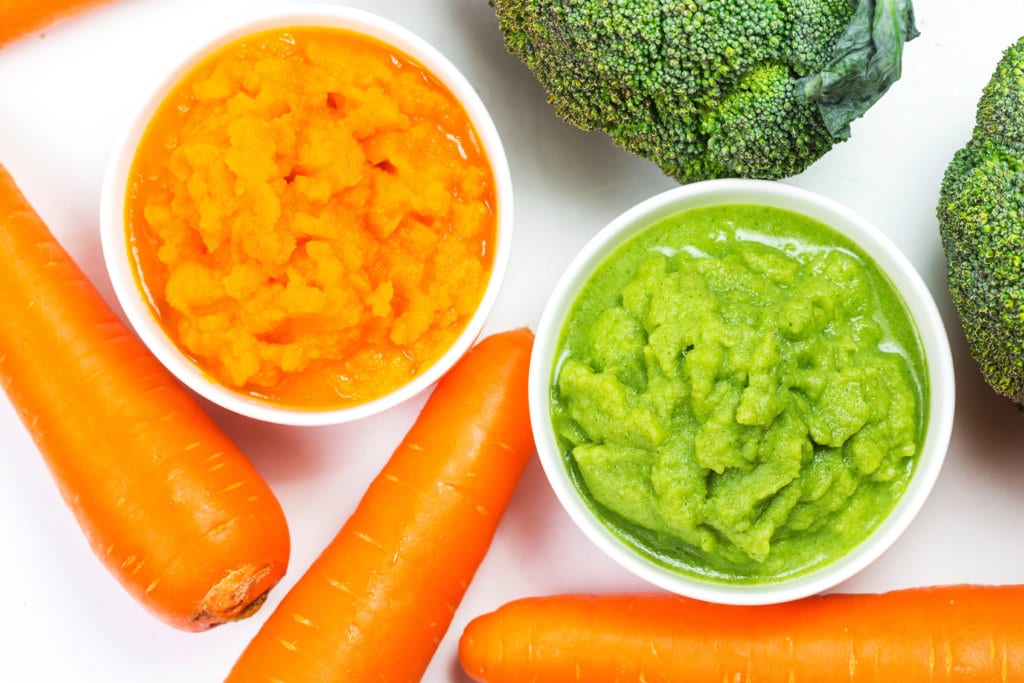
Using pureed fruits and veggies is another great option when looking for substitutes for oil in baking.
They add moisture and natural sweetness to baked goods without adding any additional fat. Some great options for pureed fruits include bananas, strawberries, and dates.
For veggies, pumpkin, sweet potato, and zucchini all work well. Simply puree the fruit or veggie in a food processor until smooth, and then use in place of oil in your favorite recipes.
Not only do these purees make your baked goods healthier, but they also add extra nutrients and flavor.
For example, using pureed pumpkin in muffins or loaves of bread can add a boost of vitamin A and fiber, while using pureed banana can add natural sweetness and potassium.
One tip when using pureed fruits or veggies is to adjust the amount of sugar in your recipe, as these purees can already add natural sweetness.
You may also need to adjust the amount of liquid in your recipe, as these purees can add additional moisture.
Overall, using pureed fruits and veggies is a great way to reduce the amount of oil in your baking while also adding extra nutrients and flavor.
Give it a try and see how it can transform your favorite recipes.
17. Cornstarch

While not typically considered an oil replacement in baking, cornstarch can be used as a substitute in some recipes.
It can help create a moist and tender texture in cakes and cookies and can also help thicken sauces and fillings.
To use cornstarch as an oil replacement, substitute it at a 1:1 ratio. Keep in mind that too much cornstarch can make your baked goods gummy or dense, so it’s best to start with a smaller amount and gradually increase as needed.
When using cornstarch in baked goods, it’s important to remember that it won’t provide the same flavor or richness as oil or other fats.
So, pairing it with other flavorful ingredients, like spices or extracts, is a good idea to make up for the lack of fat.
Cornstarch can be great among the best substitutes for oil in baking for those looking to cut back on oil or fat in their baked goods.
Just be sure to experiment and adjust your recipes accordingly to achieve the best results.
18. Mayonnaise
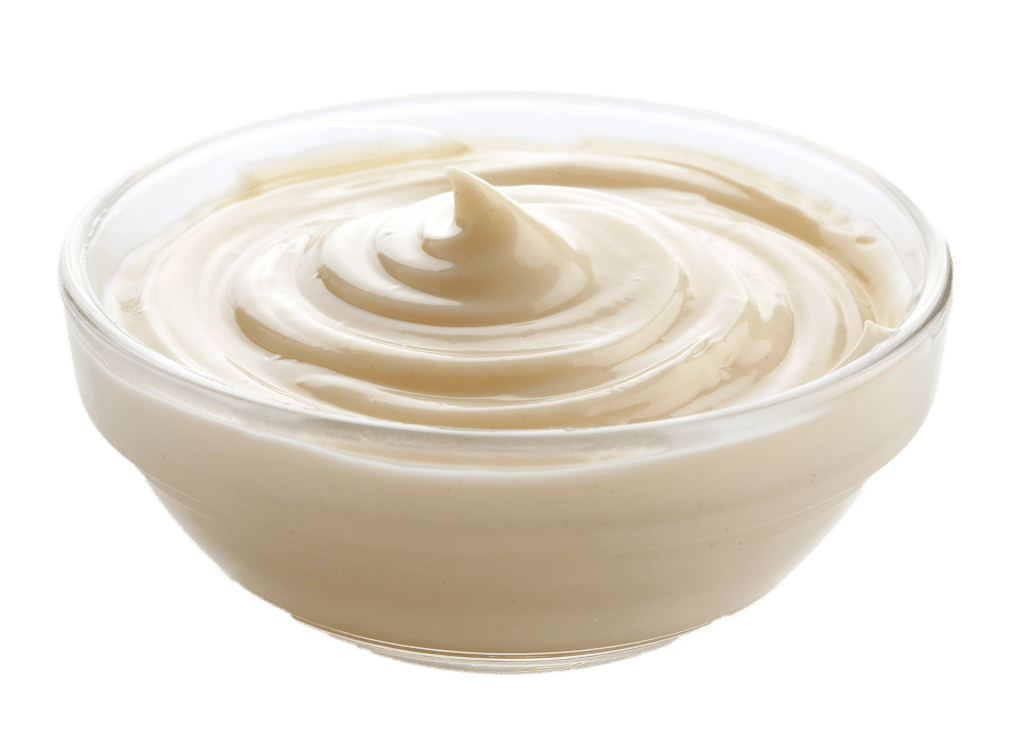
While it might seem odd, mayonnaise can actually be a great substitute for oil in certain baked goods.
Since mayonnaise is made from eggs and oil, it can add moisture and richness to your recipes.
This substitution works best in recipes like cakes and brownies where the flavor of the mayo won’t overpower the other ingredients.
To use mayonnaise as a substitute, swap it out in equal parts for the oil called for in the recipe.
Remember that mayo contains additional ingredients like vinegar and salt, so adjust your recipe accordingly to avoid any unwanted changes in flavor.
One important note: while mayo can work well in some baked goods, it’s not the healthiest option.
Mayo is high in calories, saturated fat, and cholesterol, so it’s best to reserve this substitution for special occasions or treats rather than making it a regular habit.




